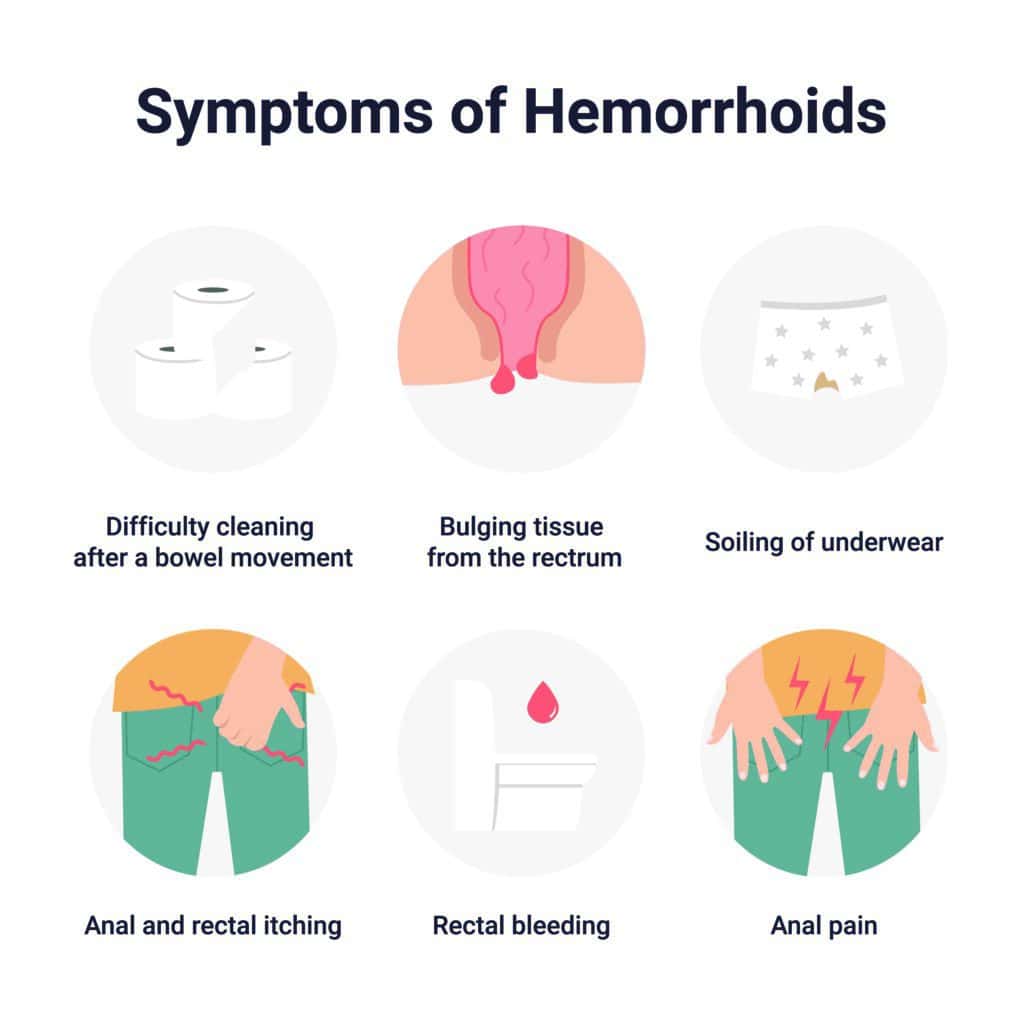
Piles, or hemorrhoid’s, are a globally relevant problem. These are swollen veins located inside your rectum, just outside the anus that is accompanied by pain, itching and in most cases bleeding. These can be managed with at-home treatments but sometimes requires medical intervention. With this blog, we will try and understand the problem better to be able to deal with it better.
Piles are enlarged veins inside the rectum around the anal area. They are often swollen, painful, and uncomfortable and cause bleeding in the rectum. They are also called hemorrhoid’s. These are present in our body since birth, and only pose a problem when they become swollen and start irritating the rectal area.
Since it occurs due to a swollen vein, the type of hemorrhoid’s will depend upon the location. Broadly it is of 2 types:
Both these types can extend or bulge outside the rectal cavity, these are called prolapse hemorrhoid’s. However, it is different from an anal fissure, although they have similar symptoms. Anal fissures occur due to tissue rupture whereas this happens from swelling of veins.

Symptoms of piles depend upon the type of piles. In the case of internal piles, one hardly has any symptoms, since there is hardly any pain in this case. One might find some blood during excretion, which is a sign of rectal bleeding.
The external or prolapsed piles will have clear symptoms. These include:
At this point, it is important to note that other conditions cause hemorrhoid’s-like symptoms, such as gastrointestinal disorders, bowel diseases, and in extreme cases colon cancer, Crohn’s disease, colitis, ulcer, etc.
It is advisable to be observant of any of the above symptoms. Be wary of abdominal pain or chronic constipation with rectal bleeding. If you notice any of these, reach out to a doctor for advice. The doctor will perform one or more of the following procedures to determine the root cause.
Based on the outcomes of these investigations, the next step will be a colonoscopy which will help detect any signs of colon cancer. These are all OPD procedures without anesthetic use. Therefore, there is nothing to be scared about.
Understanding a problem requires assessing the triggers that lead to the problem. Some of the relevant causes of piles or hemorrhoid’s are:
From these causes, we can understand the primary risk factors that may lead to piles over time. These are:
There are various ways in which piles can be handled. But broadly they can be categorized under home treatments and medical assistance from healthcare providers. Often in minor cases, piles heal without any treatment. If the symptoms surface, they usually last for a week.
At home, you can use over-the-counter medications over the affected area. Apart from this, you can:
If the above fails in relieving the pain, don’t lose sleep, reach out to a trusted healthcare provider and explain your situation clearly. Upon clear investigation and review of outcomes one of the following will be suggested:
Reach out to us in case you feel any of the symptoms above and seek medical attention from some of the best physicians in the field.
Piles are more common as we age. It can be prevented by maintaining a healthy lifestyle to avoid hard stools and constipation, which is the primary cause of piles.
Q1. How do Piles go away? Can Piles be cured permanently?
A. Sometimes piles can be cured by themselves without the person knowing they have piles. This happens in the case of internal piles where there is hardly any pain. For an external incident, over-the-counter ointments or the help of a medical practitioner will help treat the concern faster. With at-home remedies, piles can be managed but not cured completely. For that one needs to have surgical intervention.
Q2. How long do Piles take to heal?
A. The symptoms of piles last mostly for a week. If it goes away after seven days with over-the-counter medicine, then it has healed. If not, the help of a medical practitioner is required. Depending on the severity of the case and the stage of the piles the healing timeline will differ.
Q3. Can stress cause Piles?
A. By stress, if we mean putting pressure on the pelvic muscles, then yes. Apart from this, when we are mentally stressed out, our blood pressure is increased. In such a case also the existing condition of piles will worsen. Also, more stress leads to more consumption of alcohol, which in turn dehydrates the body, therefore worsening the piles.
Q4. What is the main cause of Piles?
A. The main cause of piles is constipation and improper bowel movements. If our stools are not soft and we spend hours in the washroom trying to pass them then it is a warning sign. The more pelvic pressure is applied the greater the chances of rectal bleeding. All of these are eventually the symptoms that show up in piles. So working at the root will help make things better, start by having a healthy diet rich in fibre that will assist in the process of passing stools.
Q5. What are the stages of Piles?
A. Medically internal piles have four grades:
Written and Verified by:

Experience: 23+ Years
Similar Minimal Access and Bariatric Surgery Blogs
Request a call back